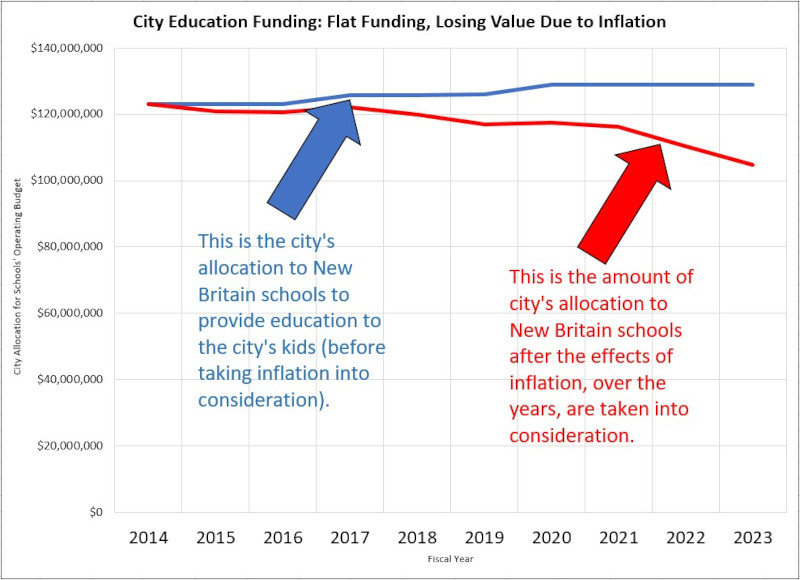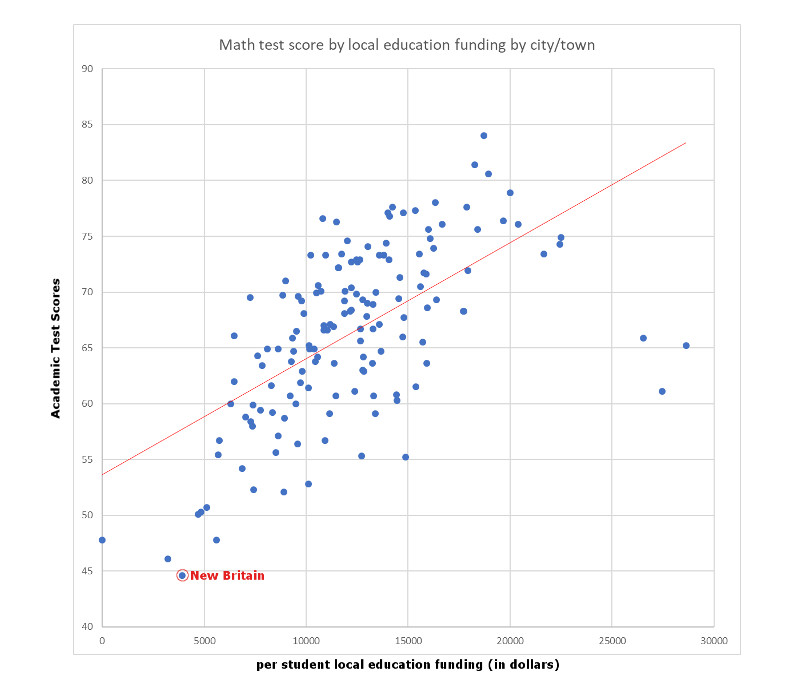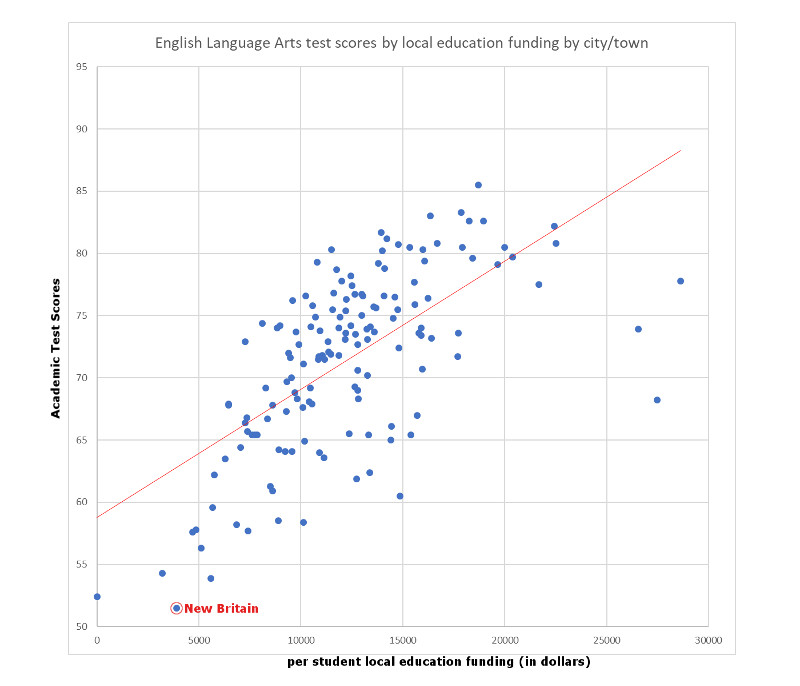Republican Mayor Erin Stewart’s budget for the upcoming 2023 budget year yet again appears to flat-fund city operating funds for New Britain schools, which appears to amount to a cut of more than $18 million in city operating funding to schools since the 2014 city budget, after inflation is taken into consideration.

Stewart has been criticized for repeatedly flat-funding the city’s funding for the operating budget of New Britain schools. Once again, she has frozen annual operating funds for New Britain schools in her budget for the city budget year that starts on July 1, 2022 and goes to June 30, 2023 (called “fiscal year 2023” or “FY2023”).
As Stewart comes toward the end of her ninth year in office, the impact of her repeated freezing of city support for education has a magnifying impact, as inflation has overwhelmed what little increases Stewart has allocated in operating funds to the city’s schools.
In current year dollars, Stewart has added what amounts to a half of a percent per year to the city’s support for operating New Britain schools, going from $123,205,000 in FY2014 to $129,014,835 in her newly announced FY2023 budget. Most of that increase, however, is actually in the form of state special education grant funding, previously been considered revenue to the city, that is now transferred to the school system. The actual allocation from the city to the schools remains $125,700,000.

But, that half of a percent in annualized education increase per year has been, by far, overwhelmed by inflation over Stewart’s eight years in office, raising prices by more than more than 23% over that time.
That means that the net result of Stewart’s budgeting been a cut in real (2013) dollars to the city’s funding for its schools. That education cut under Stewart now appears to add up to a whopping $18 million per year.
The data appear to show that inflation has meant the operating funding provided by the city to New Britain schools has gone down every year of Stewart’s administration. Adding those reductions over the years appears to total nearly $60 million in education operating allocation cuts.
Research on Impact of Low Local Schools Funding on School Test Scores
Stewart’s critics have pointed to her flat-funding of schools as an important reason for low academic scores in New Britain’s schools, an effect past research appears, generally, to confirm.
The New Britain Progressive reported in 2019 that, despite New Britain receiving, “the fifth highest state Education Cost Sharing grant funding of all of the cities and towns in the state,”
New Britain’s own local commitment to education, on the other hand, is among the lowest municipal school districts in the state. Only Bridgeport allocated less local funding per student than New Britain in the 2015-2016 state data.
While New Britain residents have less money than the state average to fund local services, the New Britain Progressive reported that, even looking at a percent of the city’s ability to pay, the city of New Britain still appeared to allocate to its schools, “the second lowest among municipal school districts in the state.”
Hartford’s contribution was not in that data and may have been lower, still, which would have made New Britain third lowest.
The New Britain Progressive also reported in 2019 that,
Comparing the amount of local support for education, using the 2015-2016 data, to the most recent academic test scores appears to show a general correlation between how much a city or town provides in local funding for their schools and the test scores of the students in their schools. The comparison appears to show New Britain’s place near the bottom of both local education funding and test scores as part of a larger pattern, with New Britain near the low end of the scale.


In 2019, the New Britain Progressive reported that, at that time, it appeared that it would have taken a $14 million or more per year local education funding increase from the city to get the city up to the average amount cities and towns spent as a portion of their local ability to pay, apparently leaving New Britain’s city commitment to annual school operating budgets far behind the benchmarks that appeared correlated with higher educational outcomes. Since 2019, the effect of the after-inflation cuts in the city allocation for the schools appears to push New Britain behind by another $12 million annually.
Many have accused Stewart of obfuscating the city’s responsibility for supporting the education of New Britain’s kid, with some speculating that Stewart does not consider it the responsibility of the city at all.
The city’s schools have relied heavily during Stewart’s administration on increases in state aid brought into the city by the governor and the city’s state legislative delegation.
“We have delivered millions back to our city,” Rep. Bobby Sanchez (D-25) said in 2021, “but without partners on the city level that care about education our schools will continue to be underfunded.”




